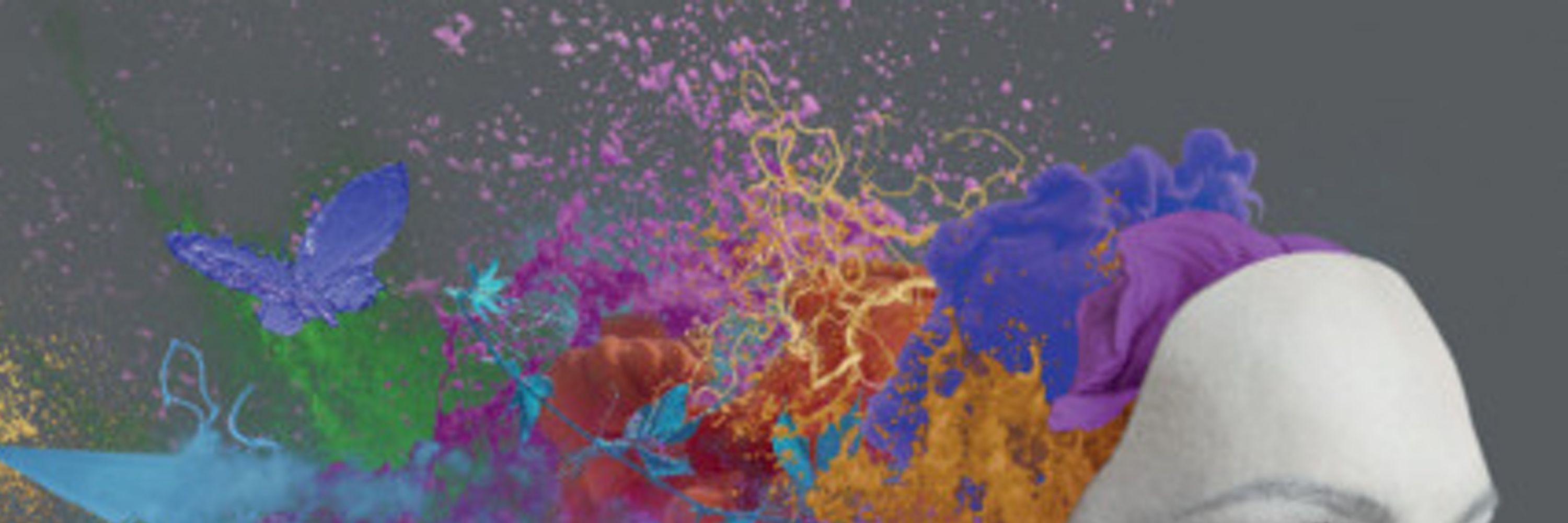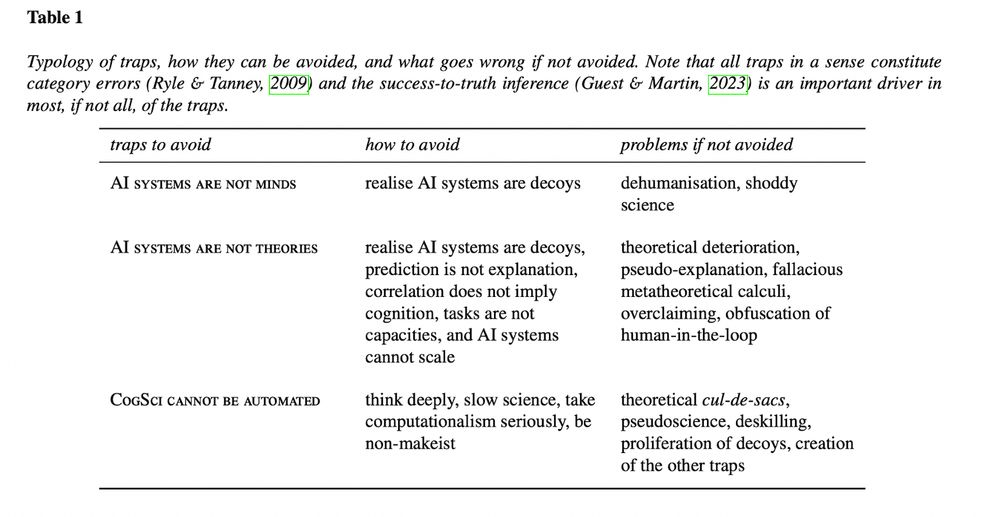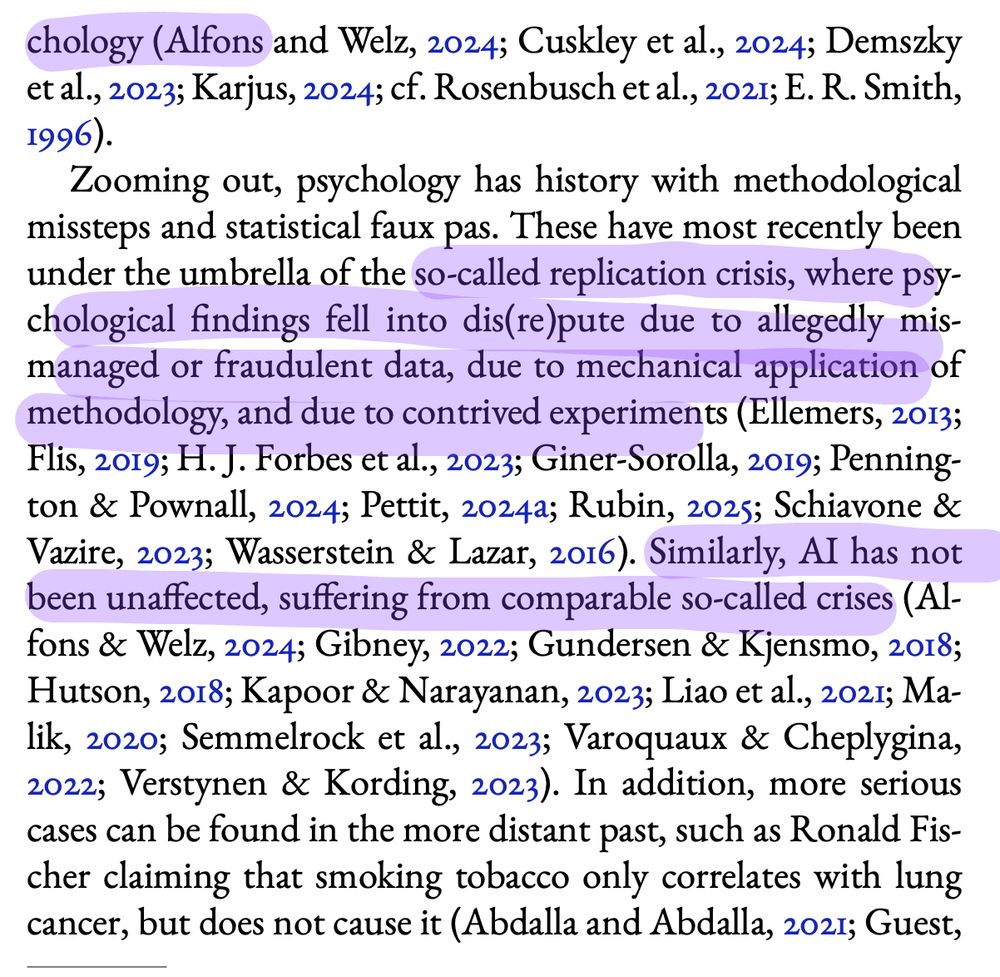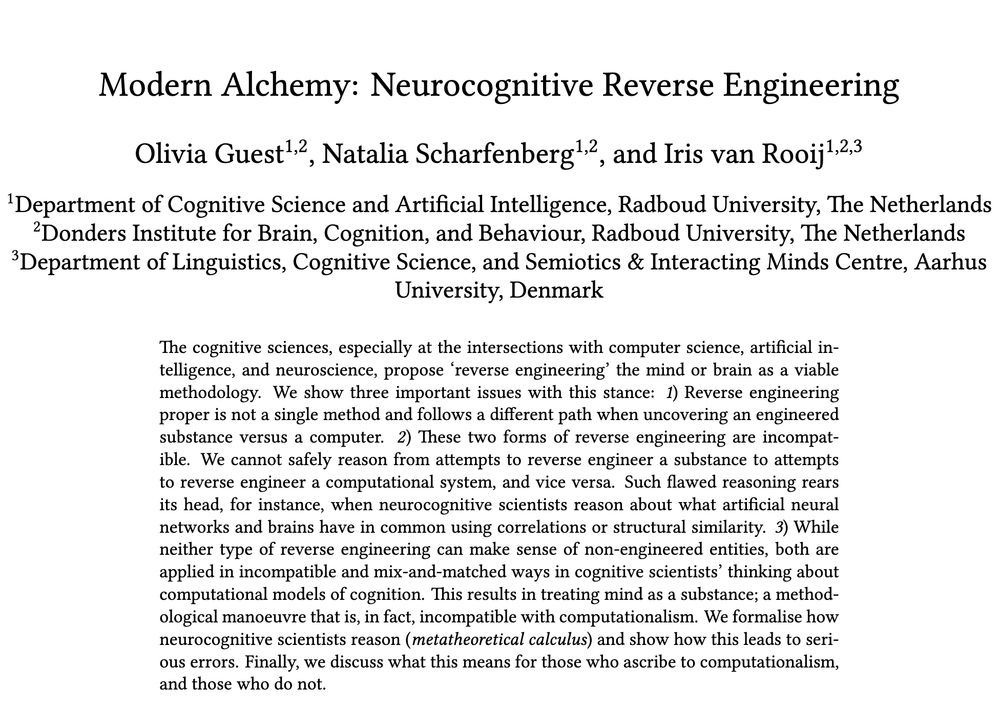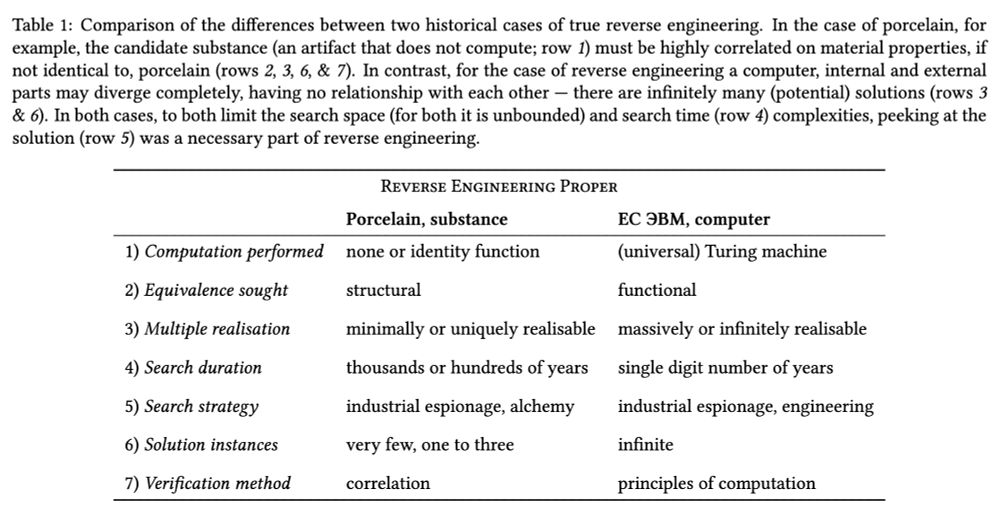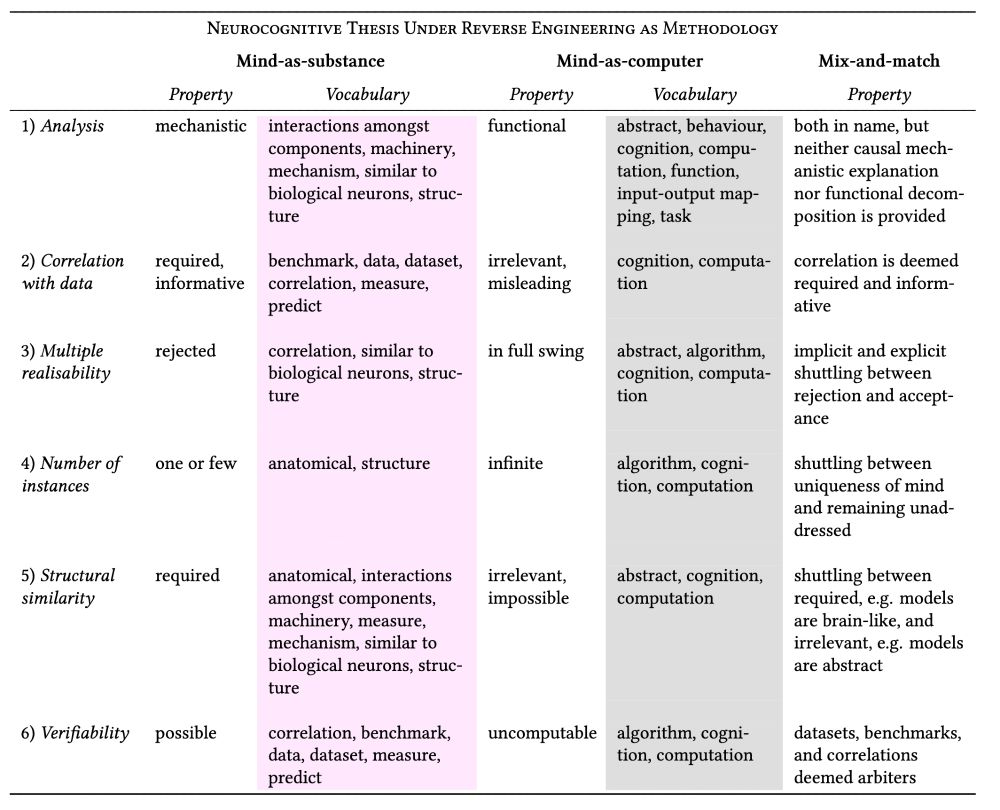Iris van Rooij 💭
@irisvanrooij.bsky.social
16K followers
1.1K following
1.6K posts
Professor of Computational Cognitive Science | @AI_Radboud | @[email protected] on 🦣 | http://cognitionandintractability.com | she/they 🏳️🌈
Posts
Media
Videos
Starter Packs
Pinned
Reposted by Iris van Rooij 💭
Reposted by Iris van Rooij 💭
Reposted by Iris van Rooij 💭
Reposted by Iris van Rooij 💭
Reposted by Iris van Rooij 💭
Reposted by Iris van Rooij 💭
Reposted by Iris van Rooij 💭
Reposted by Iris van Rooij 💭
Reposted by Iris van Rooij 💭
Reposted by Iris van Rooij 💭
Reposted by Iris van Rooij 💭
Reposted by Iris van Rooij 💭
Reposted by Iris van Rooij 💭
Reposted by Iris van Rooij 💭
Reposted by Iris van Rooij 💭
Reposted by Iris van Rooij 💭
